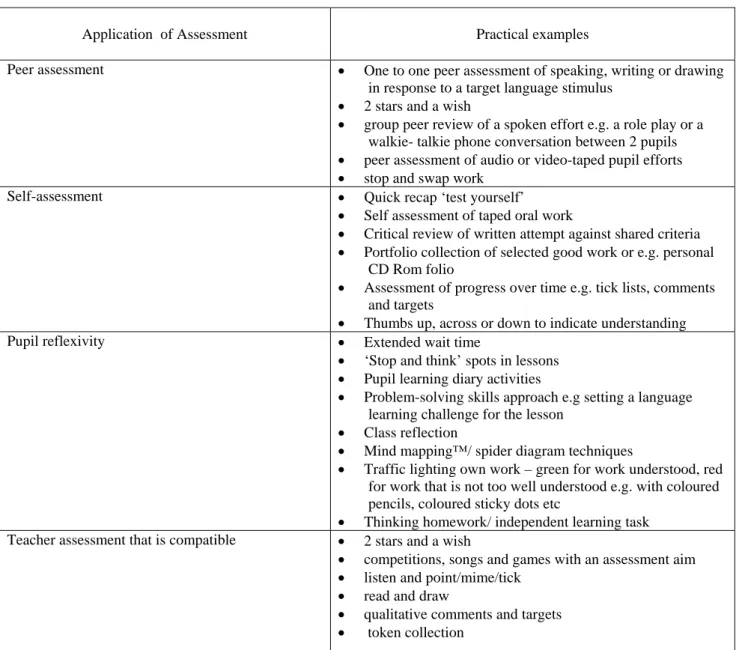Developing effective formative assessment practices in the primary modern foreign language classroom
Texto completo
Figure

Documento similar
In addition to the different successions and conceptions of computational thinking, in order to be able to work effectively in the classroom and carry out an adequate
MCI participants performed at the same level as the control group in discrimination tasks, emotional labelling, prosody comprehension tasks, and immediate facial emotional memory
The aim of this paper is to demonstrate that reading authentic literary material in the English as a Foreign Language (EFL) classroom can improve students’ language learning skills as
By bringing together perspectives from two areas of research (teacher cognition and language and pedagogy both in general education and L2 learning) it is possible to construct
In terms of the teacher training, over 80% had taken general pedagogy courses, about 70% of primary and secondary teachers had taken assessment courses, whereas only 40% of
Key words: Classroom interaction, co‐construction of knowledge, Content and Language Integrated Learning (CLIL), Exploratory Talk, primary level, group work,
And secondly, how students’ logs can be used to automate the assessment of different skills such as the ability to explain terms in a foreign language or to assess definitions
For a short explanation of why the committee made these recommendations and how they might affect practice, see the rationale and impact section on identifying children and young